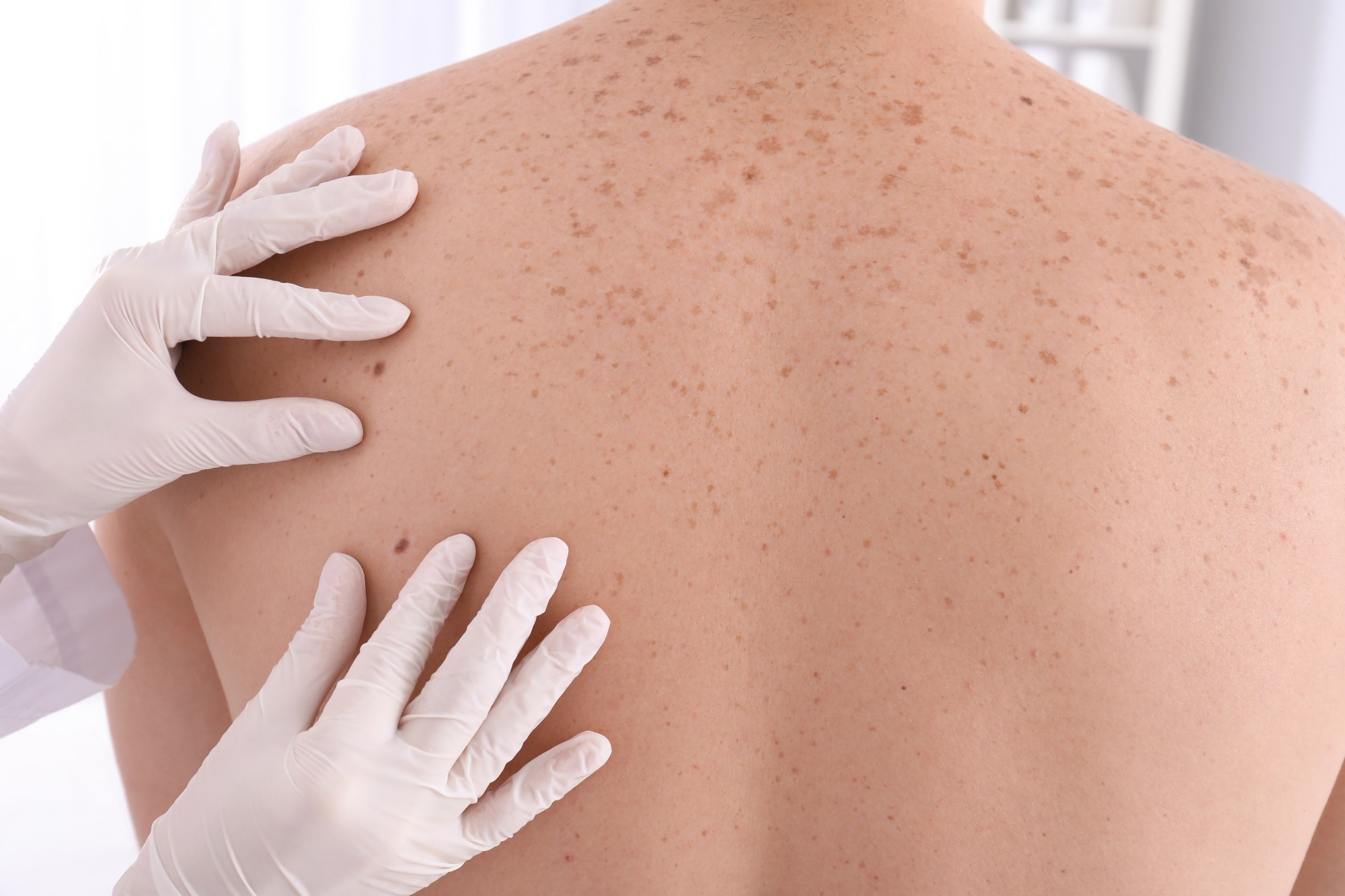In a paper published in the journal Sustainability, researchers addressed the growing concern about skin diseases by emphasizing the need for advanced and non-invasive smart systems for skin lesion screening. The introduction of a unique framework that combined various fields, which included system dynamics modeling, allowed for the assessment of the resilience of these systems. Their findings suggested that improving the skin screening technology directly enhanced system resilience by marking a significant step toward better healthcare solutions.
 Study: Enhancing Healthcare Resilience: A Novel Approach to Smart Skin Screening Apps. Image credit: New Africa/Shutterstock
Study: Enhancing Healthcare Resilience: A Novel Approach to Smart Skin Screening Apps. Image credit: New Africa/Shutterstock
Background
Skin cancer is a substantial health concern affecting approximately 20% of Americans. The importance of early detection lies in its significant impact on treatment success rates, with stage one skin cancer detection leading to a remarkable five-year survival rate of up to 99%. Skin conditions including those caused by cancer are diagnosed by the detection of abnormal skin lesions. Presently, dermatologists diagnose skin conditions through visual inspection, which is subjective and prone to errors. The biopsies are often ordered when cancer is suspected. However, they can sometimes be unnecessary, resulting in the wastage of resources. The use of artificial intelligence (AI) for image analysis in smartphone-based skin lesion screening apps presents a promising solution for early detection.
Prior research has explored automated and non-invasive skin lesion assessment, focusing on smartphone applications leveraging AI and image analysis. While many computer-aided methods rely on clinical images and high-end processors, smartphone-based applications have gained popularity, especially during the COVID-19 pandemic. These applications aim to enhance early detection and empower users to manage their skin health effectively.
Proposed Method
Risk Management and Resiliency Concepts: Risk management involves a comprehensive process that includes risk identification, assessment, and strategies for risk mitigation or acceptance. Risks can originate from diverse sources, including internal factors such as production delays and equipment breakdowns. Additionally, external factors like pandemics, cyber-attacks, and natural disasters also pose significant risks to operations. It is crucial to rank these risks based on their likelihood and potential impact while considering the enterprise's risk tolerance.
On the other hand, resiliency signifies the system's capability to respond and adapt to disruptions by allowing it to maintain effective functionality. It is characterized by the capacity to recover from interruptions and thrive amid changes. Within the framework, resiliency pertains to the skin lesion app's ability to maintain desirable performance even in the face of unexpected scenarios or interruptions.
Application of Risk Management and Resiliency: This study explores the dynamics of resiliency within the supply chain network of smart skin-lesion-screening apps. The focus is on assessing the vulnerability and capability of various factors involved in this ecosystem. The research provides valuable insights into the risk management processes, with practical applications in contemporary skin-lesion monitoring systems that harness cutting-edge smartphone technology.
Moreover, these methodologies can enhance resiliency and risk assessment in the context of critical healthcare challenges by offering promising solutions for improved healthcare outcomes.
Experimental Results
Simulation and Case Scenarios: The primary goal of the simulation is to analyze the dynamics of the model developed based on the smart skin-lesion screening framework. To assess how different factors affect resiliency, various input variables representing different case scenarios are introduced. These variables cover aspects such as the simplicity of the app interface, app consistency, accessibility, app capability, algorithm competitiveness, real-time data-sharing, screening viability, diagnosis variability, and the rate of necessity.
Normalized values ranging from 0 to 1 are used for simulation, with 0 indicating the worst-case scenario and 1 representing the best case. This normalization process ensures consistency and allows for the analysis of subtle changes. While the actual values of these input factors would typically be derived from real-world data measurement, this study utilizes synthetic data that closely mimics real-world scenarios for its purposes.
Case Scenarios and Dynamics: The dynamics of the resiliency level in different case scenarios are examined in a 3D view. The input variables in each case scenario are modified while others remain constant. For example, in Case #1, the skin lesion algorithm competitiveness level is set high, and in Case #2, the app capability level is set low. These variations help us understand how different factors impact resiliency. A baseline scenario serves as a reference point, where all input variables are set at their midpoint of 0.5.
Through these simulations, it is observed that factors related to the design and performance of the skin lesion app, such as the algorithm's competitiveness, can significantly influence resiliency. The results show improvements and reductions in resiliency compared to the baseline depending on the input variables.
Conclusion
In summary, this paper introduces a unique framework for assessing the resilience of smartphone-based skin lesion screening apps using system dynamics modeling. It offers insights into the interplay of various factors affecting these systems and bridges multiple domains, including engineering, AI, risk assessment, and system dynamics. Based on simulated data, the model's findings offer valuable insights to stakeholders in the supply chain to empower individuals to monitor their skin health. Future adoption with real-life data promises enhanced skin lesion monitoring and risk management that can ultimately benefit public health.